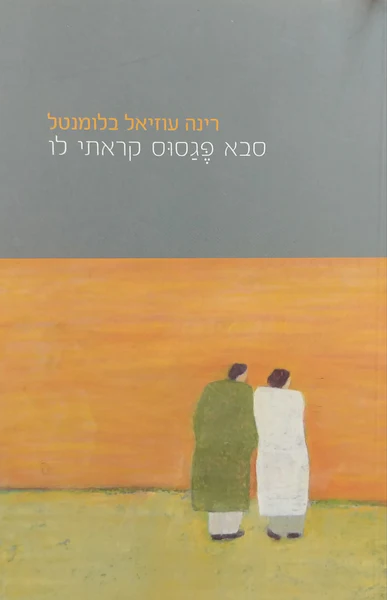
I Called Him Grandpa Pegasus
Two women, who remain nameless throughout the novel, carry on an intensive dialogue for several decades. They tell the story of their friendship, their adolescence and respective lives against the backdrop of changes taking place in Israeli society. Their words conceal a search for identity and a strenuous attempt to carve their personal voice out of the collective one. Both are the only daughters of Holocaust survivors, but their backgrounds are very different, representing different types of Israeliness. One of them, dark-haired and from a Sephardic family, has musical talent and dreams of a career as a singer and actress on Broadway. The other, with fair hair and Ashkenazi parents, is an outstanding student aspiring to succeed in mathematics. They meet at a prestigious Tel Aviv high school in the late 1950s, and keep up their friendship even after the brunette drops out and their paths diverge—mentally as well as physically—in ways that only deepen with time. Significantly, the two women still need one another, have reservations about each other, and at times only seem to truly exist through the other’s eyes. This is a novel about youthful ambitions and their downfall, about the sweet dream of taking to the sky like Pegasus, the winged horse, and the sad awakening when they fall to the earth of reality.

-
“ One of the best books I have read recently… [It has] sweeping power… The writer spreads a colorful carpet of changing relationships—a keystone of fine novels—and arouses many thoughts in the reader’s mind. ”
-
“ A delicate tale, very beautiful. As a novel of adolescence and identity, it is truly moving. ”
